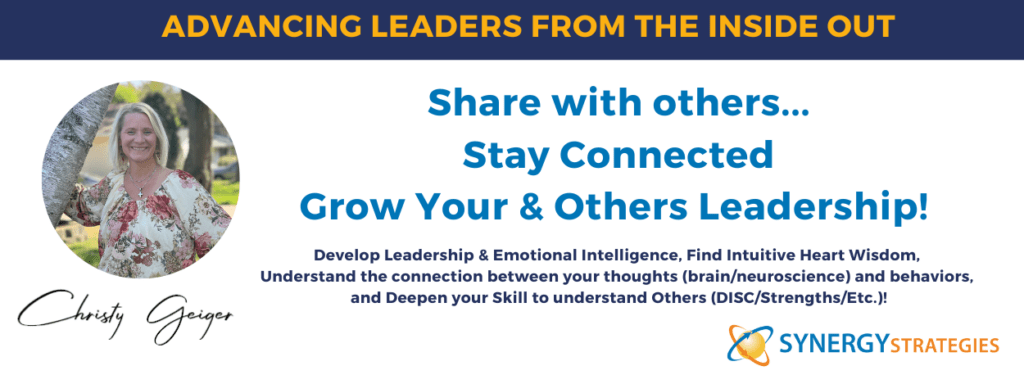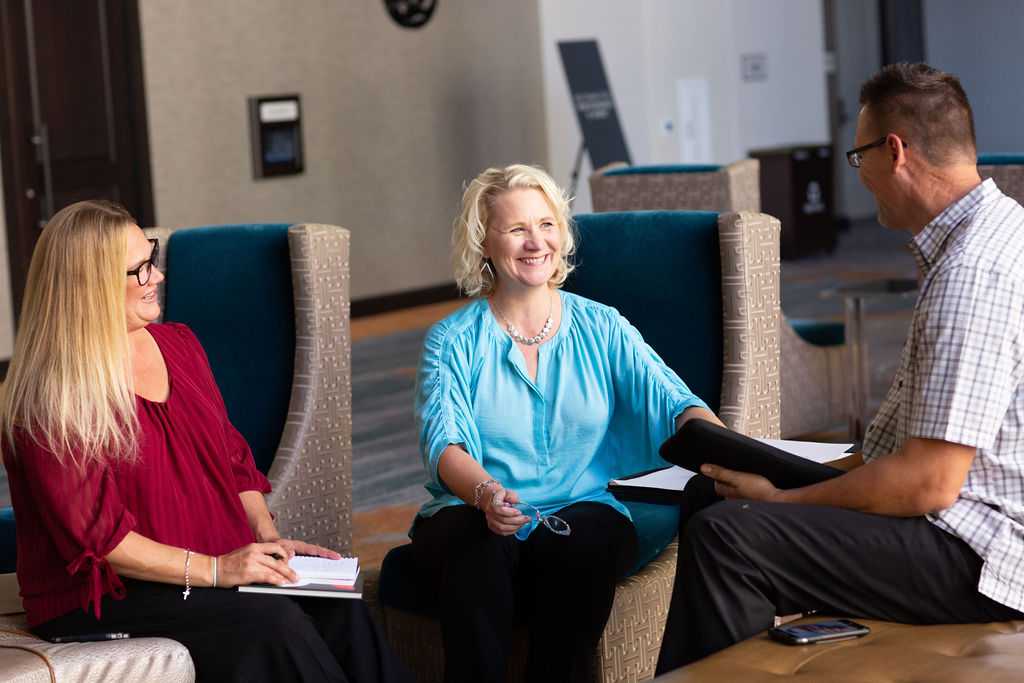How to have real conversations
Ever asked yourself these questions about difficult conversations?
- How do you be honest in a professional way when there are hard things to say?
- Should you be squishy and evasive in a conversation to not hurt someone’s feelings? What happens when things get worse and then when you are honest it doesn’t go well?
- Is your observation fair to share? Can people be honest, real, and genuine? Will people get upset or will we get in trouble if we are honest?
- Can they handle the truth, and will it make a difference anyway?
- What is the difference between annoying and unhelpful or hurtful criticism and constructive criticism?
- Do we say we want honesty but struggle to make hard decisions and have hard conversations ourselves?
Real talk can be hard for leaders as they wrestle with how much to share, what is the ramifications of what they share, will the team understand, is it too much, etc. Feedback can be hard to take as a leader and leaders can accidentally shut it down.
I love the story Patrick Lencioni tells about facilitating a team retreat where the owner had asked for feedback in a recent survey. The survey revealed that the owner did not listen or take feedback well. When Patrick brings this up to the owner, he says, “Who said that?” The team sunk under fear of their honesty and jumped to rescue and backpaddle. As leaders, we can shut feedback down.
In other challenges, our team can sometimes be immature and unskilled in how to give feedback, so comments come out in a critically negative and entitled sounding way. Giving feedback is a learned skill. Take time to help the team learn it!
A book that can help is Radical Candor by Kim Scott. She does a nice job explaining how people can care personally while challenging directly. This is relevant for the leader learning to give better feedback and for helping a team learn how to give feedback. (Radical Candor six-minute summary https://www.youtube.com/watch?
Here are three tips:
-
- MAKE FEEDBACK EASIER TO DIGEST. It can be hard to give feedback because we must determine if the feedback is about us (my ego and needs) or about what is important for the higher good, values, mission, and direction. Feedback is not about hurting feelings and it is not about lacerating people with your over self-empowered opinion.
- It is about being honest in a way that is respectful, delivered in a way that helps the hearer to absorb the feedback, and is said for the higher good of the person or the work they do. It supports them to be in great alignment with the overall goals of the mission. It is said in a way that the receiver can receive the feedback with integrity and feel valued but also encouraged in upskilling. I call this dancing with the ego. If the ego is activated, they are not going to be able to hear you or your feedback.
- A simple approach is the cookie sandwich: positive, upgrade, positive. “John, you are very diligent to be here every AM and get everything organized for the day. It really makes a difference and thank you for that hard work. I noticed that the team is really missing the communication huddle at 7:30 and are scrambling to figure out who is doing what. It seems the huddle helped them. What are your ideas of how we can get the team on their routes quicker? I know you work hard to communicate with the team in many ways and they appreciate it. What can we do about the huddles?”
- SELF-CHECK WHEN YOU ASK FOR FEEDBACK. Often when we ask for feedback it is natural to defend, justify or rationalize why we did something. We can easily feel misunderstood and hurt that something was taken the wrong way, or someone had a negative experience or impression of us or our actions. Feedback is hard, but it is also an opportunity. Remember feedback is not usually about you, it is more about how someone experiences you in their world. So if you had a world of just you, the mirror of you might not be offended or hurt, but this other human being in your world is. That is because we have different personalities, styles, and needs. Listen to the feedback not from the lens of you doing something wrong, but with a heart for this person and what they are needing from you or asking you for. Again, it can be hard to hear feedback if it is not done in a positive and constructive way (see #1) or if the feedback is lacking emotional intelligence. Try to hear the feedback from what this person is needing in their relationship to you rather than taking it personally as an attack of your intentions, character, or who you are. It is often about the person and how you impacted them – intentionally or not.
- BE BOLD. Squishy leadership leads to miscommunication and misunderstanding. Be bold in addressing conflict, issues, and gaps. Avoid side-stepping or alluding to things that “might” need to be addressed or “might” be an issue. Call a spade a spade, with a spirit of gentleness and respect. Be kind, compassionate, and empathetic. Be understanding of what is happening for others rather than assuming their worst intention. See their best intention and their highest potential and let them know how much you value them and know they can help you figure this out or close this gap. Share the feedback in a way that does not attack them but presents the reason (why) there is a gap or challenge and be clear about what outcome is needed. Co-design and work together to find a way to make that happen. Use the co-designing recipe of who will do what by when and how we will know so it is clear what the agreement is.
- MAKE FEEDBACK EASIER TO DIGEST. It can be hard to give feedback because we must determine if the feedback is about us (my ego and needs) or about what is important for the higher good, values, mission, and direction. Feedback is not about hurting feelings and it is not about lacerating people with your over self-empowered opinion.
There is more but let’s start there. Giving feedback is a never-ending and evolving art and challenge. Communication is challenging because we hear information differently.
After giving feedback, ask them what they heard and give them a chance to reflect. When people give you feedback, practice this mirroring skill as well (tell them what you heard them say and ask if you understood correctly). Doing these things helps us have more real conversations and get to the heart of matters. This allows us to solve real problems and accelerate the work we do in our missions!





